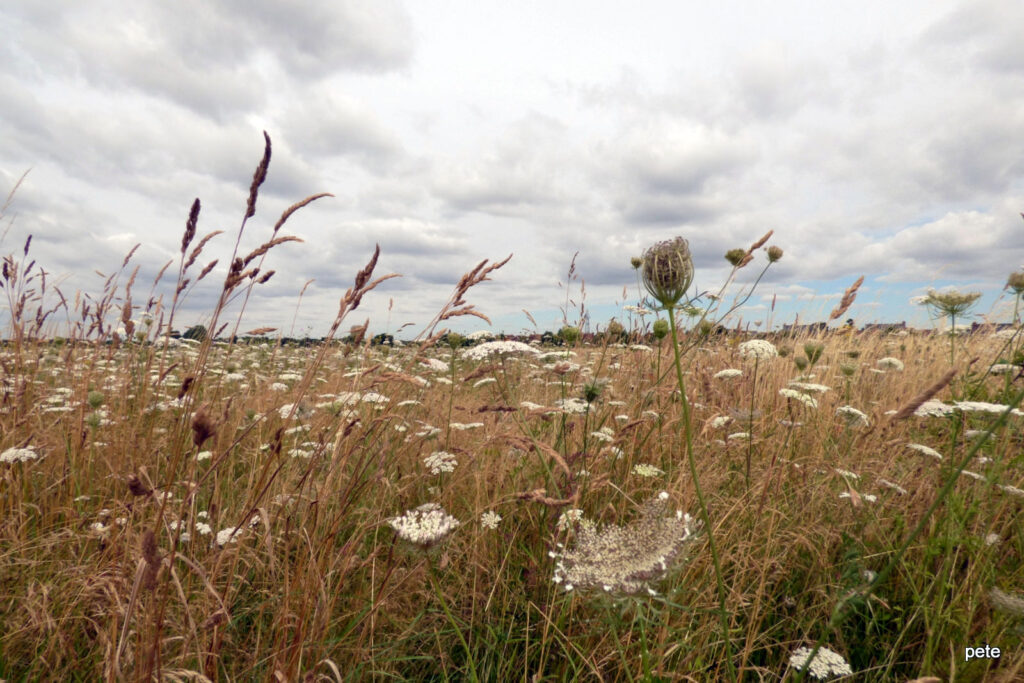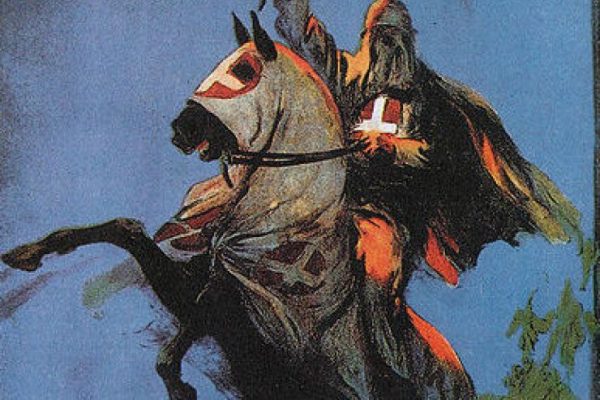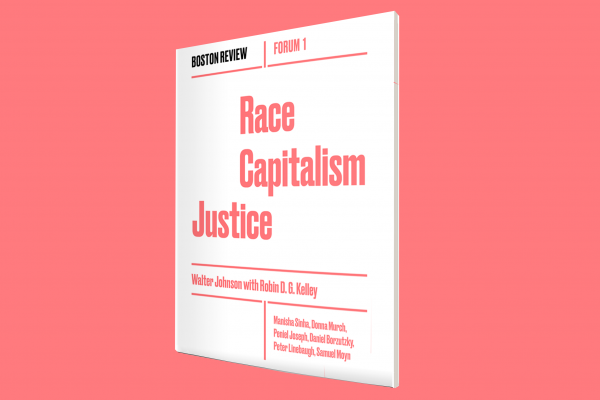“There are no meadows in the mind of the oppressed. There are only slums, factories, forced-labor fields, border detention facilities, Guantánamos, Abu Ghraibs, cops, devastated streets and jails.”
—Heriberto Yépez
Or, as I remember reading it, “What is up with white poets and meadows?”
• • •
It’s like there’s a scrap of glory in me I was asked to keep safe while the world goes to hell.
Or like everyone has one.
Or like the world has always been hell.
Or like some parts are lovely because the other parts are hell.
I grew up in the suburbs of a lovely part.
It was really just a housing tract –
Let’s call it “White Meadows” –
But I grew up and wrote some poems.
I got a few sweet e-mails about them –
“I really like the pop culture and gay sex references in your poetry”
They were poems about cities / poems about meadows / poems about let’s call it the global north.
But the slums and the suburbs –
All through the 80s and 90s I tried to fathom this
Finally it led me to the avant-garde
Whoops –
• • •
Was it always on analogy to speed?
But speed is just a fear-suppressant – slow yourself down and it rushes back in –
“Every time North-Americans feel ‘unsafe,’ others get killed abroad. If there is something that North-Americans critical agents need to learn, it is to feel ‘unsafe’”
I see that I am frequently unsafe
Unsafe to others –
But when I feel unsafe
Which is kind of always –
It’s not because I worry that a brown person’s gonna steal my stuff
It’s because the violence I grew up seeing, seeing and repressing –
The violence done to black people, to brown people, to poor people, to women –
I never saw a guarantee that I would be spared the same
Of course you could say that every day of my life has been that guarantee
Like who are you kidding white boy
But a child doesn’t know that
So something worse happens –
You develop a fear of being brought into contact with the violated
Your very desire to help people becomes a barrier to knowing them, since you’re afraid you couldn’t offer actual solidarity –
And you probably couldn’t
Of course this is narcissistic, like children are, and it factors out the courage and the buoyancy of the oppressed
But relying on an image of the courage of the oppressed is just a way to say godspeed and be done with them –
“Them”
Ethics, fuck
You can’t think your way out of this
You can’t feel your way out
You sure can’t write your way
• • •
In the North American suburbs we used to ride our bikes around when school was out
It was hilly – there were nooks and hollows where adults would never go
You’d lay down your bike and – I don’t know – make up stories – sing under your breath –
It had a lawless, world-receiving feel to it
I rarely felt normal but I remember being happy
• • •
Heriberto I would have liked to ride bikes with you
But you were busy having the childhood that afforded mine
Maybe they made you waste your intellect on building some toy I played with mindlessly
Maybe you assembled my bicycle chain
Up here we were slowly becoming the rust belt
And you –
All those hits the peso took – just to help the coked-up, ravening dollar
You were becoming the avant-garde
• • •
ANNUIT COEPTIS
Aeneid ix. 625
The young Ascanius, inexperienced in battle, but hungry for glory
The full hexameter translates,
“Omnipotent Jupiter, favor my audacity while I try to kill this kid”
Apollo rushes in for high fives once he’s down and claps our hero on the shoulder
“And that, my boy, is the path to the stars”
Fast forward to the founding of Alba Longa
Also to every soldier who’s ever told me I owe him for my “freedoms” –
As opposed to owing my freedom to like 3 million slaves
Anyway Ascanius got his
There was nothing left of Alba Longa after the Romans got pissed off
Now it’s a suburb
• • •
This one
This cut peach on a table
This one, this cut peach, this is the one
This is the one I will enjoy without believing I deserve it –
Good faith on credit / the North American dream
The history of dreams – and the childhood history of bumping into the dream’s backdoor –
The rejected awareness that your whole life was built, as your parents’ lives were, on the backs of others elsewhere –
And that your suffering while not less real for this did not in the least exonerate you from supporting the design by which an infinite misery was built up to cushion you –
The history of the dream’s design –
That’s the history of your becoming white –
• • •
There’s a corner of the UC Berkeley campus called the “Faculty Glade”
I used to cross it sometimes, when I taught there, on my way to Strada Café
It’s not far from Sproul
In June I heard some music there designed to address the “Anthropocene”
It was an interesting blend of drone-sounds and the kinds of flourishes in brass that spell inauguration
To me this meant it was a kind of sunrise song, but not for any single sunrise
Anyway everybody listening was white
The musicians were arranged at the glade’s perimeter, I think to give the audience a comforting sense of being embraced by earth
White people picked their way contemplatively among the seated
And if you listened hard, beneath the drone-sounds and the trumpet flourishes you could hear the sounds of protest from 500 feet away,
Because it was late June 2015, and because despite everything black students still enroll at Berkeley,
And that was the sound of the “Anthropocene”:
Murder murder murder / peaceful droning
Listen I don’t blame John Luther Adams for writing his terrestrial music
I would like to see Alaska someday
But I have to say –
Against the backdrop of the agony in Sproul – all those contemplative expressions looked like signs of debility …
• • •
Heriberto I imagine only history will tell me whether it’s mine to recite the names of the murdered in my poems, when I didn’t know them
I don’t want to make it worse
Many mediations separate me from the political dead
And I don’t know how many separate you from yours
But if it’s not mine to name them in whatever genre this is, I need to learn the contours of the genre in which I could,
Especially if it’s not poetic –
• • •
This past week in mid-July on the spongy floor of a meadow by the sea we scattered the ashes of Patrick Baroch
He was a friend and a mystery to me
He knew how to bring out the shine in things –
He had a technician’s way of taking pains and a saboteur’s talent for the mischievous
And lord he hated office work
He was a spangle in a box of buttons, if you know what I mean
He made a video of me once at Bedlam Coffee in Seattle reading “The Dial,” which took fifteen minutes
I tried to lose myself in the ambient sound, but they’d turned off the music –
I tried to focus on his camera’s little tripod,
But I just got more self-conscious as I read –
And when I got to the end he said, ‘Perfect! Now let’s do it again.”
Patty had a kind of boundless joy in him and he went through hell
What we scattered him into I don’t know
The northern Pacific shone
It shone like infinite rail
It shone through all the sounds it made, and it made all sound
It made the shorebirds cry
It made the cypress creak
It made the sound of losing your companion
I wouldn’t call Patty’s a political death, though the Bush years ground him down
I couldn’t tell you exactly how his whiteness was different from mine, just as his queerness was
And I don’t know what it sounds like to the rest of the world when one white man remembers another
But I don’t believe there’s any purely white space –
The muses aren’t all white thank god and they know the names of the songs you played while you wrote your elegies
• • •
So, Heriberto –
The internet tells me you plan to quit writing poems
I’m going to miss your mischief
I’m going to miss your underworlds, rotated 90 degrees
Those Homeric journeys where you have to sneak over walls
This summer on the Russian River I picked up a copy of Lorca translations and came across a line toward the end of “Ode to Walt Whitman” where he writes,
“Una danza de muros agita las praderas,”
Sorry for my Spanish. Anyway I thought of you – or, I thought of us – on either side of walled-in meadows
For Lorca Whitman is the right kind of faggot – manly, national
In this admiration he resembles nothing so much as half the gay men I know, but that’s another poem
When I think of their two deaths it breaks me
I have no illusions about hybridity –
I know no hybrid poetry can bridge the gap between the flowered procession and the unmarked grave
I know there’s no right ratio between the peso and the dollar, any more than there’s a fair price for a loaf of bread
Bread should be free
Children should flourish
And I can’t believe I have to say this –
Guantánamo should burn to the ground
Normally I’d add, and in its place let there spring up a meadow –
But I can almost hear you smack your forehead
It’s not your job to find me a better ending,
Though you already have –
“History is not cyclical but its form is scroll-like”
Far-flung words and letters warped into relation –
Scrolls are full of wormholes
So I’m stripping this poem – not of rhetoric, of self,
But of its wish to end –
It cannot end –
It can only get smaller –
Small enough to worm from recto to verso
I’m down to one-line stanzas and a scrap of glory here
I’ll see you on the other side







